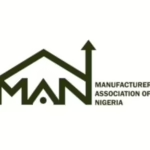The Nigerian automotive sector is currently grappling with considerable challenges, as the surge in imported foreign vehicles combined with soaring inflation threatens the advancement of indigenous vehicle manufacturing and assembly operations.
Industry leaders have voiced apprehensions that these issues could derail government initiatives aimed at fostering local automotive production, curbing unemployment, and driving economic progress.
Over the last ten years, the Nigerian government has implemented several measures to promote domestic vehicle manufacturing, including imposing tariffs on imported cars and offering incentives to assembly plants. Despite these efforts, the steady arrival of used foreign vehicles-often smuggled or brought in through unofficial channels-has significantly undermined these policies.
Simultaneously, Nigeria’s persistent inflation has escalated the costs of essential manufacturing inputs such as raw materials, spare parts, and transportation. This inflationary pressure has led to higher prices for locally assembled vehicles, diminishing their appeal compared to imported alternatives. Moreover, inflation has eroded consumers’ purchasing power, restricting their ability to buy new cars, whether produced domestically or imported.
Industry stakeholders warn that if these obstacles remain unaddressed, the local automotive manufacturing sector risks stagnation or even regression. Such a downturn would negatively impact job creation, technology transfer, and Nigeria’s aspirations to become a leading automotive hub in the region.
Luqman Mamudu, an expert in automotive development, expressed serious doubts about the sustainability of Nigeria’s automotive growth plans under the current investment climate.
He remarked, “The survival of Nigeria’s automotive development programme is highly unlikely given the present investment conditions. For a nation aiming to nurture a local automotive industry, controlling the influx of used vehicles is essential. Unfortunately, Nigeria’s borders have effectively been opened wide to the unrestricted importation of end-of-life vehicles from across the globe.”
“New manufacturing and assembly plants cannot compete on price without access to affordable credit schemes supported by government intervention. Such a scheme, initially approved by the Central Bank of Nigeria under a provisional license, has been dormant since 2015,” Mamudu added.
Having served as Director of Policy and Planning at the National Automotive Design and Development Council (NADDC), Mamudu further highlighted the adverse effects of recent policy shifts: “The Nigerian Finance Act of 2020 succumbed to pressure from used vehicle importers, who misled policymakers into believing that protective tariffs and concessions for local assembly were inflating vehicle prices.”
“Consequently, tariffs on imported new and used commercial vehicles were drastically reduced from 35% to 10%, alongside lowered import duties on semi-knocked-down (SKD) kits used by assembly plants. This policy reversal rendered SKD imports economically unfeasible, forcing assembly plants to downsize and rely heavily on imports,” he explained.
Reflecting on the current landscape, Mamudu lamented, “Today, Nigeria’s automotive sector resembles a sprawling lot filled with second-hand vehicles dumped from all corners of the world.”
He expressed particular concern about Abuja, the Federal Capital Territory, noting, “Highways in Abuja, once lined with florists, are increasingly being overtaken by car dealerships. Authorities in the FCT must act swiftly to curb this troubling trend.”
Mamudu concluded with a call for urgent action, urging that the Nigerian Automotive Development Policy, already approved by the Federal Executive Council, be promptly submitted to the National Assembly for legislative consideration.
Engr. Saliyu Aliyu, a fellow of the Nigerian Institute of Mechanical Engineers and chairman of the board of directors for driving schools in Nigeria, underscored the critical barriers impeding the country’s automotive progress.
He attributed much of the sector’s lag to a lack of political commitment. Despite the presence of skilled technicians and access to relevant technologies capable of making a significant impact, these assets remain underutilized, especially within academic institutions.
Engr. Aliyu criticized the regulatory environment, pointing out that only registered engineers receive formal recognition under Nigerian law. This limitation stifles innovation, as unregistered inventors and developers are often excluded from advancing their concepts. “We are, in effect, obstructing our own progress,” he remarked.
He emphasized, “The automotive industry has the potential to generate more revenue than any other sector if empowered individuals receive even minimal government backing. I speak from firsthand experience, having worked with one of Nigeria’s largest automotive firms.”
Promise Akpan, an automotive engineer actively engaged in the sector, cautioned that Nigeria’s heavy dependence on imported vehicles exposes consumers to inflated prices that many cannot afford. While acknowledging the importance of local production, he noted that importation remains inevitable without a robust domestic manufacturing base. Simply issuing licenses to prospective local manufacturers does not equate to genuine government support.
Akpan stressed that sustainable growth demands continuous investment, strategic partnerships with international manufacturers for technical know-how, and policies that incentivize production.
He acknowledged that prices for locally assembled vehicles will naturally differ from imported models due to production costs. However, Akpan believes Nigeria’s indigenous automotive industry can flourish through coordinated planning, investment, and effective policy enforcement by both stakeholders and government.
To revitalize the sector, Akpan recommended adopting best practices from developed nations, such as sending Nigerian engineers abroad for advanced training, who can then return to enhance local capabilities. He also advocated for dedicated budget allocations to support local manufacturers and workforce development, including setting clear targets for establishing automotive plants nationwide. Such strategic initiatives, he argued, could unlock the sector’s immense potential and reduce Nigeria’s reliance on expensive vehicle imports.






















